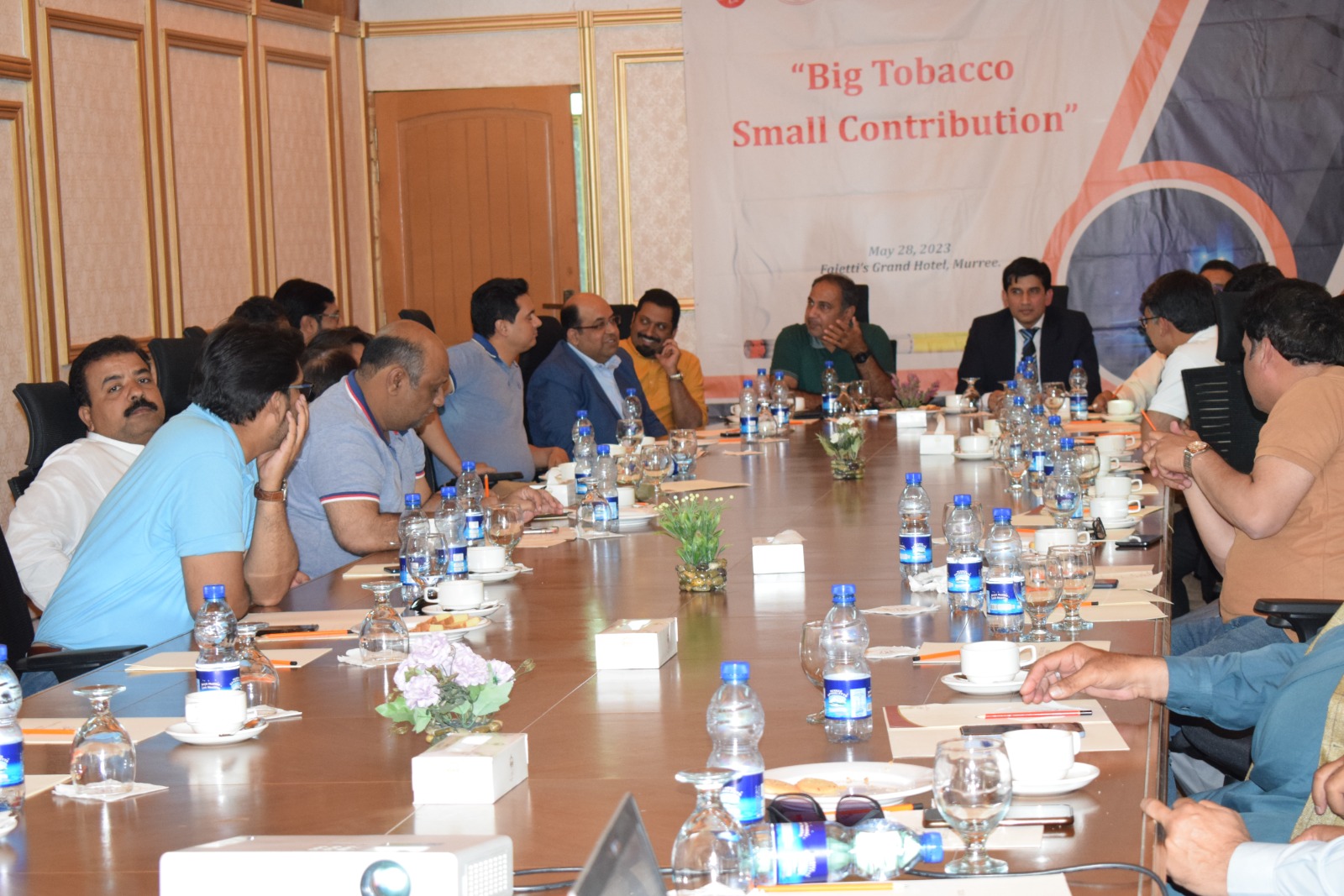TD NEWS
MURREE: In a groundbreaking event organized by the Society for the Protection of the Rights of the Child (SPARC), government officials, elected representatives, and influential journalists joined forces to advocate for increased tobacco taxation in Pakistan. The event, held in collaboration with the Federal Board of Revenue (FBR), shed light on the economic implications of tobacco, the burden on public health, and the tactical maneuvers employed by the tobacco industry. Notably, the gathering aimed to garner support for the FBR’s remarkable Track and Trace System (TTS), which has yielded exceptional results in combating illicit tobacco trade.
Malik Imran, Country Head of the Campaign for Tobacco-Free Kids (CTFK), underscored the immense economic burden of 615 billion rupees inflicted upon Pakistan by the tobacco industry. Imran emphasized the critical need for heavy and regular taxation, commending the government’s resolute decision to increase the Federal Excise Duty (FED) on cigarettes. This move resulted in an additional 11.3 billion FED revenue and 4.4 billion VAT revenue in the fiscal year 2022-23, constituting a significant boost of 0.201% to the nation’s struggling economy. Imran debunked the industry’s excuses surrounding illicit trade, exposing their underreporting practices aimed at evading taxes. Moreover, he revealed how cigarette manufacturers burden consumers with the tax responsibility to enhance their own profitability.
Rizwan Sarfraz, Additional Project Director of the Track and Trace System at FBR, highlighted the successful implementation of the TTS in 16 out of 22 major tobacco contributors. This revolutionary system introduced technological monitoring, amplified transparency, improved tax compliance, and effectively curtailed the prevalence of counterfeit goods in the country. Sarfraz presented compelling data showing a notable 6.5% decrease in cigarette production from July-December 2021 to July-December 2022, accompanied by an impressive 11.75% increase in FBR’s tax collection. These achievements stand as significant milestones for the Track and Trace System.
Nisar Ahmed Cheema, Member of the National Assembly, urged all stakeholders to tirelessly prioritize the well-being of the Pakistani population, ensuring that their health does not suffer under any circumstances. Cheema emphasized the imperative implementation of FBR’s track and trace system across all companies to safeguard vital tax revenue. Additionally, he called upon parliamentarians to advocate for consistent and substantial increments in tobacco taxation to foster a healthier society.
Dr. Ziauddin Islam, Former Technical Head of the Tobacco Control Cell at the Ministry of Health, stressed the urgency of sustainable measures to address the staggering toll of 170,000 tobacco-related deaths and the crippling economic burden of 615 billion rupees. Driven by the goal of reducing consumption and generating revenue, he advocated for regular intervals of increased tobacco taxes.
Khalil Ahmed Dogar, Program Manager at SPARC, emphasized the pressing need for unity among all stakeholders to shield children and youth from the detrimental effects of the tobacco industry. Dogar highlighted the industry’s multibillion-dollar losses to the national exchequer and emphasized the vital importance of regularly implementing higher tobacco taxes as a crucial step towards protecting the future generations of Pakistan.
